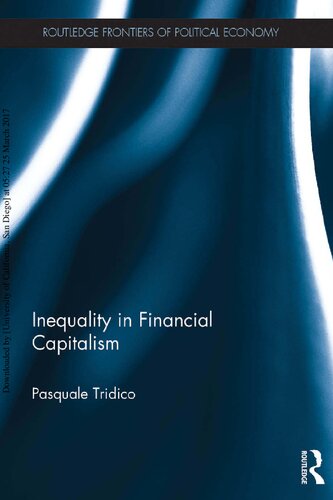

Most ebook files are in PDF format, so you can easily read them using various software such as Foxit Reader or directly on the Google Chrome browser.
Some ebook files are released by publishers in other formats such as .awz, .mobi, .epub, .fb2, etc. You may need to install specific software to read these formats on mobile/PC, such as Calibre.
Please read the tutorial at this link. https://ebooknice.com/page/post?id=faq
We offer FREE conversion to the popular formats you request; however, this may take some time. Therefore, right after payment, please email us, and we will try to provide the service as quickly as possible.
For some exceptional file formats or broken links (if any), please refrain from opening any disputes. Instead, email us first, and we will try to assist within a maximum of 6 hours.
EbookNice Team

Status:
Available4.6
20 reviewsRecently, the issue of inequality has regained attention in the economic and political debate. This is due to both an increase in income inequality, in particular among rich countries, and an increasing interest in this issue by researchers and politicians. In the last three decades, income inequality among rich countries increased. This period also witnessed the growth of "financial capitalism", characterised by the strong dependency of economies on the financial sector, by the globalisation and intensification of international trade and capital mobility, and by the "flexibilisation" of labour markets and the reduction of wage shares.
From the 1980s to the present day, this book considers the theoretical aspects of inequality (its foundations, definitions, approaches and origins) and examines empirical evidence of income inequality in a wide range of advanced economies. The key arguments in this volume are that income inequality increased during this period because labour and welfare became seen as costs to be compressed in "financial capitalism" rather than as a fundamental part of aggregate demand to be expanded. However, the welfare state is not a drain on economic performance and competitiveness, nor is it a barrier to economic efficiency. Instead, it is demonstrated that in countries that adopt "welfare capitalism", welfare state expenditure not only contributes to a reduction in inequality but also fosters economic growth.
Inequality in Financial Capitalism is of great importance to those who study economics, political economy, labour economics and globalisation.